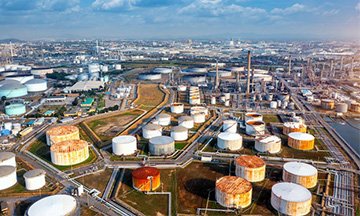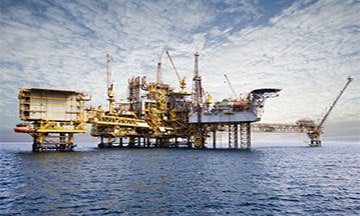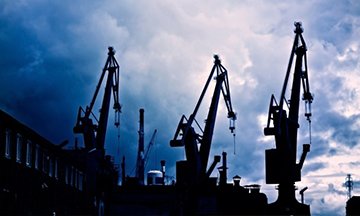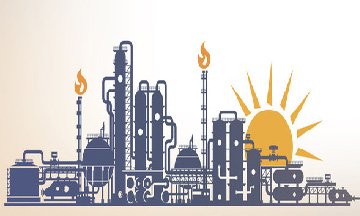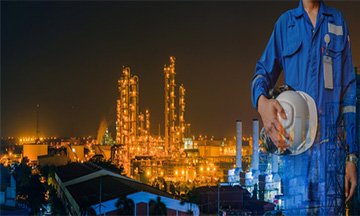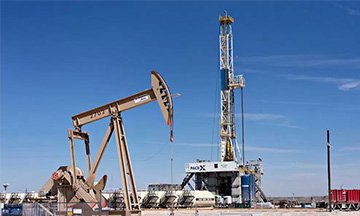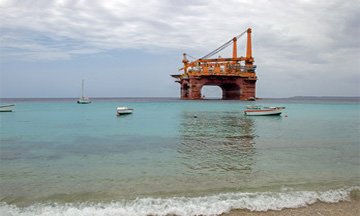Best Practices in Petroleum Storage Depot Operations
| Date | Venue | Duration | Fees | |
|---|---|---|---|---|
| 06 May - 10 May, 2024 | Dubai | 5 Days | $4750 | Register |
| 03 Jun - 21 Jun, 2024 | Dubai | 15 Days | $12525 | Register |
| 08 Jul - 12 Jul, 2024 | Dubai | 5 Days | $4750 | Register |
| 05 Aug - 09 Aug, 2024 | Dubai | 5 Days | $4750 | Register |
| 14 Aug - 16 Aug, 2024 | Berlin | 3 Days | $4475 | Register |
| 02 Sep - 04 Sep, 2024 | Dubai | 3 Days | $3950 | Register |
| 30 Sep - 04 Oct, 2024 | Dubai | 5 Days | $4750 | Register |
| 04 Nov - 08 Nov, 2024 | Dubai | 5 Days | $4750 | Register |
| 23 Dec - 25 Dec, 2024 | Johannesburg | 3 Days | $4100 | Register |
| 23 Dec - 27 Dec, 2024 | Dubai | 5 Days | $4750 | Register |
Course Overview
What is petroleum storage?
Extraction of products is not the only important process in the production cycle of petroleum resources. The storage of petroleum is crucial to its supply because an inappropriate and inefficient structure for the storage of Petroleum resources and products can lead to immeasurable loss to the producers, citizens, communities, and the country. It could also mean imminent danger to the vicinity where such defective storage is situated. Therefore, it is important to ensure that the storage facilities have a security system that is not easily breached. This will prevent undue and unauthorised intrusion into the storage depot. These measures will prevent damage to storage equipment, theft of oil, amongst others.
How are petroleum products stored?
The importance of proper petroleum storage cannot be emphasised enough. This comes with the general knowledge of the economic importance of petroleum. Those taking these courses will become more informed about the best practices in the operation of petroleum storage depots. This includes the various safety measures that must be put in place before, during and after the storage of the petroleum products. The participants will be exposed to avoidable hazards at the storage depot, such as fire accidents, including prevention and reactionary measures to curtail the damage that may result from such an outbreak, if any is to occur.
Course Objectives
By the end of this course, professionals should be able to:
- Understand the best practices in operations relating to a petroleum storage depot
- Know appropriate storage facilities and structural dimensions that should be used depending on the different types of petroleum products
- Understand safety procedures and mechanisms that must always be put in place.
- Know various terminologies used in petroleum storage
- Know the different engineering techniques to secure the storage depot’s optimum operation and prevent the loss of petroleum resources or minimise such losses
- Understand the health implications of improper or ineffective storage of petroleum resources and products in a depot
- Know the routine inspection by highly skilled maintenance officers to ensure the smooth and harmless operation of the storage depot
Training Methodology
Zoe Talent Solutions makes available to professionals a spectrum of training courses. Professionals teach our courses with vast experience from specific fields for proper knowledge transfer. There are different methods through which the training is conducted; some are delivered in classrooms, while others are in the form of practical activities. Assignments, tasks and projects are given to participants by dividing them into groups. This fosters interaction and a good working relationship among participants between the facilitator and the participants. Where necessary, participants are assigned roles to play for better assimilation.
Organisational Benefits
As a professional taking this course, organisations will benefit in the following ways mentioned below:
- Reduction of risk of fire accident due to safety measures that must have been put in place
- A proper storage system with an effective operation
- High maintenance of the storage facilities
- Voluminous quantity of petroleum products reserve
- Low level of risk of the breach of the security of the storage facilities
- Competitive advantage over their competitors by your technical expertise
- Higher revenues, which stem from the competitive edge the organisation has over its competitors in the industry
Personal Benefits
Professionals who take this course will benefit in the ways mentioned below:
- Complete understanding and detailed information about the storage of petroleum products
- Knowledge about the best and acceptable practices in petroleum storage depot operations
- Substantial knowledge to review designs of storage facilities (depots) and make changes to meet up with the standard safety guidelines
- Improved level of knowledge and confidence that the course gives the participants allows them to have better bargaining power
- Increased exposure and knowledge of required documentation needed by one’s organisation to ensure compliance with the required safety and operation standards
- Enhanced foresight for making informed decisions in combating possible risks that might compromise the safety levels of the depot
- Increased knowledge and confidence to train other professionals on the best practices in petroleum storage depot operations
- A sense of pride comes with contributing to the success and specialisation of your organisation through your knowledge in the field
- Enhanced skill set and capabilities to assume higher roles and responsibilities
- Perform roles involving supervising and managing petroleum storage facilities such as depots and tank farms
Who Should Attend?
- Executives and other officials employed at oil-production companies
- Managers who oversee petroleum depots or tank farms
- Board members of companies responsible for making critical decisions on the storage of their oil-related products
- Vendors involved at various storage operations stages
- Auditors, both internal and external, on the lookout for compliance with all standards in oil storage facilities
- Insurance companies and their employees who have to pay indemnity for loss that results from the insurance of such storage facilities.
- Legal practitioners playing important roles in legal issues which may arise from negligence, occupational hazards, natural disasters etc.
- Prospective investors who need to know the best practices in the operation of petroleum storage depot
Course Outline
This course contains an extensive outline for those who want to become experts in Petroleum storage depot best practices:
Module 1: Meaning and Definition of Concepts
- What is Petroleum Storage?
- How important is Petroleum Storage?
- What factors should be considered before deciding the location of petroleum storage depots?
- What are the challenges with Petroleum Storage?
Module 2: Storage Types for Chemicals and Petroleum Products
- Floating roof
- Vertical with weak roof-to-shell seam
- Emergency relief venting horizontal or vertical tanks
- Measurement tools – measuring and gauging depth, temperature, level etc.
- Maintenance methods and inspection
- Painting as a technique for the prevention of corrosion of tanks
Module 3: Effects of Various Storage Practices
- Oil Storage, Practices and Environmental issues
- The Relationship of Good Oil Storage Practices and Healthcare
- Impacts of Proper Petroleum Storage Practices on the Gross Domestic Products (GDP) of the Country
- Profit increase through best petroleum depot practices
Module 4: Planning of Bulk Petrol Storage Depots
- Design Outline, Structure and Building of Large Storage Tanks
- Topography and Soil Structure for Depot Construction
- Normal Venting for Above-ground Tanks
- Emergency Venting
- Spillage Control for the Prevention of Pollution
- Lighting for All-Round operation
Module 5: Types and Specifications of Buildings in Petroleum Depots
- Administrative buildings
- Operational facilities
- Service buildings
- Power Plants
- Boiler houses
Module 6: Different Operations in Petroleum Storage Depots
- The Delivery Exchange of Bulk Cargoes to Tankers
- Loading and Offloading of Rail Tankers
- Loading and Offloading of Road Transport Vehicles.
- Appropriate Condition for Transfer Operations
- Quantity Measurement
- Quality Control
Module 7: Fire Precautions and Fire Control in Depots
- Ignition sources
- Access control
- Availability of fire control equipment
- Fire extinguishers, adequate water, fire hoses.
- Personnel (Firefighters)
Module 8: Protection and Welfare of Petroleum Storage Depot Personnel
- Safety and Protection Measures
- Contact with Petroleum Products and First Aid
- Location of a medical facility on site
- Availability of trained medical professionals
Module 9: Maintenance of and Extensions to Petroleum Storage Depots
- Risk Assessment Procedure
- Repairs and Alterations
- Equipment Availability and Usability
- Tanks, Vessels etc.
Module 10: Legal Issues in Petroleum Storage Depot Operations.
- Legal Framework Regulating Storage of Oil in Depots
- Negligence
- Vicarious liability of Employers
- Insurance
